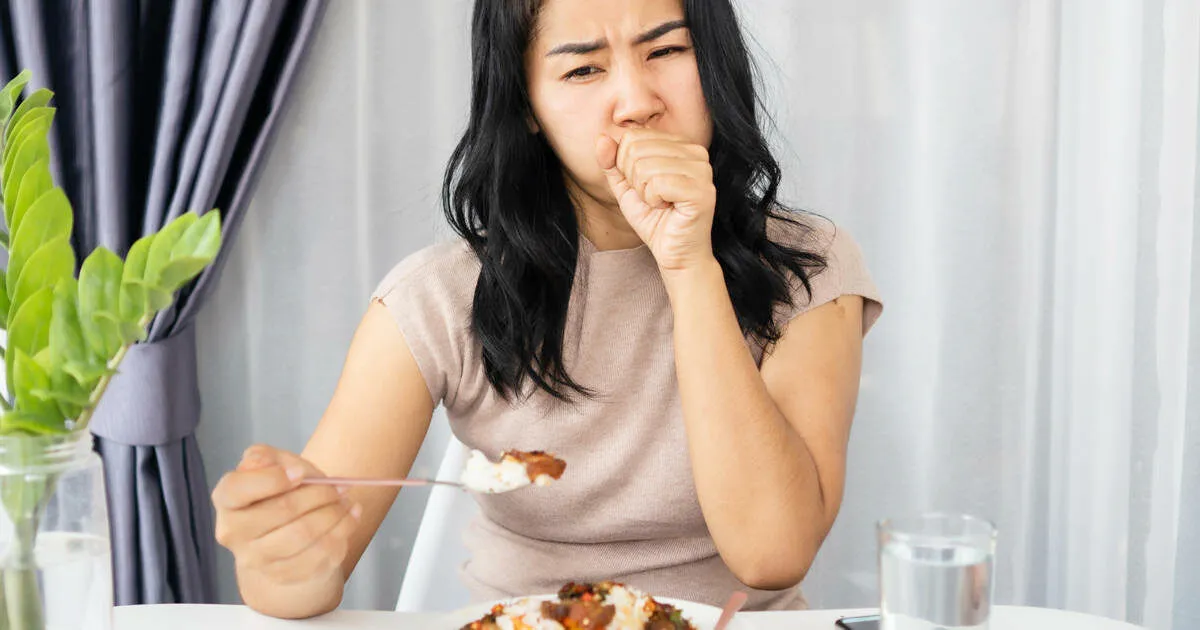Feeling nauseous after eating is a common experience that affects people of all ages. This uncomfortable sensation can range from mild queasiness to severe stomach upset that may lead to vomiting. While occasional nausea after meals isn’t usually cause for concern, frequent episodes may indicate an underlying health issue that requires attention.
Common Causes of Nausea After Eating
1. Digestive System Issues
Gastroesophageal Reflux Disease (GERD):
- Occurs when stomach acid flows back into the esophagus
- Causes heartburn and nausea, especially after large meals
- Symptoms often worsen when lying down after eating
Gastroparesis:
- Condition where stomach empties too slowly
- Leads to bloating, nausea, and feeling full quickly
- Common in people with diabetes
Food Poisoning:
- Results from consuming contaminated food
- Symptoms appear within hours to days after eating
- Includes nausea, vomiting, diarrhea, and sometimes fever
2. Food-Related Causes
Food Allergies and Intolerances:
- Allergies trigger immune system responses (e.g., nuts, shellfish)
- Intolerances cause digestive discomfort (e.g., lactose, gluten)
- Symptoms range from mild nausea to severe reactions
Overeating or Eating Too Quickly:
- Consuming large portions overwhelms the digestive system
- Eating too fast leads to swallowing excess air
- Both can cause stomach discomfort and nausea
3. Medical Conditions
Pregnancy:
- Morning sickness affects many pregnant women
- Can occur at any time of day, not just mornings
- Related to hormonal changes
Gallbladder Disease:
- Gallstones can block bile ducts
- Causes nausea after fatty meals
- Often accompanied by right upper abdominal pain
Migraines:
- Some people experience nausea before or during migraines
- Certain foods may trigger migraine-related nausea
4. Psychological Factors
Anxiety and Stress:
- Activates the “fight or flight” response
- Reduces blood flow to digestive system
- Can cause nausea, especially in stressful situations
Eating Disorders:
- Conditions like bulimia often involve nausea
- May be self-induced or a psychological response
When to Seek Medical Attention
While occasional nausea after eating is normal, certain symptoms warrant medical evaluation:
- Persistent nausea lasting more than a week
- Vomiting blood or material resembling coffee grounds
- Severe abdominal pain
- Signs of dehydration (dark urine, dizziness, extreme thirst)
- Unexplained weight loss
- High fever (over 101.5°F or 38.6°C)
- Jaundice (yellowing of skin or eyes)
Diagnostic Approaches
Doctors may use various methods to determine the cause of post-meal nausea:
- Medical History Review:
- Frequency and timing of nausea
- Associated symptoms
- Dietary habits
- Physical Examination:
- Abdominal palpation
- Checking for signs of dehydration
- Diagnostic Tests:
- Blood tests (check for infections, inflammation)
- Stool tests (detect parasites or infections)
- Imaging (ultrasound, endoscopy)
- Food allergy testing
Treatment Options
Medical Treatments
| Condition | Treatment Approach |
|---|---|
| GERD | Antacids, proton pump inhibitors |
| Gallstones | Medication, surgery |
| Gastroparesis | Prokinetic drugs, dietary changes |
| Food Allergies | Avoidance, emergency epinephrine |
| Pregnancy Nausea | Vitamin B6, doxylamine |
Home Remedies and Lifestyle Changes
- Dietary Adjustments:
- Eat smaller, more frequent meals
- Avoid trigger foods (spicy, fatty, acidic)
- Stay upright for 30 minutes after eating
- Natural Remedies:
- Ginger (tea, candies, supplements)
- Peppermint (tea or oil)
- Chamomile tea
- Stress Management:
- Deep breathing exercises
- Meditation
- Regular exercise
Prevention Strategies
- Mindful Eating Habits:
- Chew food thoroughly
- Eat slowly without distractions
- Stop eating when comfortably full
- Food Preparation:
- Practice proper food safety
- Store food at correct temperatures
- Wash hands and surfaces frequently
- Hydration:
- Drink fluids between meals rather than with meals
- Avoid excessive caffeine and alcohol
- Sleep and Routine:
- Maintain regular meal times
- Get adequate sleep
- Allow time for digestion before lying down
Special Considerations
For Children
- More susceptible to stomach viruses
- Watch for signs of dehydration
- Smaller portions may help prevent nausea
For Older Adults
- Digestive system slows with age
- Medication side effects more common
- May need softer, easier-to-digest foods
When Nausea Becomes Chronic
Persistent nausea after eating may indicate:
- Chronic digestive disorders (IBS, Crohn’s disease)
- Metabolic disorders (diabetes, thyroid issues)
- Neurological conditions
- Certain cancers (rare)
These conditions require comprehensive medical evaluation and management.
Conclusion
Nausea after eating can stem from various causes, ranging from temporary digestive upset to more serious medical conditions. While many cases can be managed with simple dietary changes and home remedies, persistent or severe symptoms should be evaluated by a healthcare professional. By identifying triggers and implementing appropriate treatments, most people can find relief from post-meal nausea and enjoy eating comfortably again.
Remember that your body’s signals are important – paying attention to when and why nausea occurs can provide valuable clues for finding the right solution. If in doubt, always consult with your doctor to rule out serious conditions and develop an effective treatment plan.

